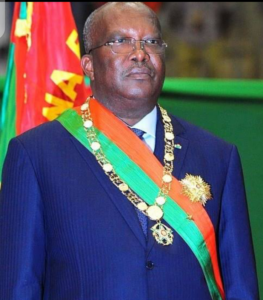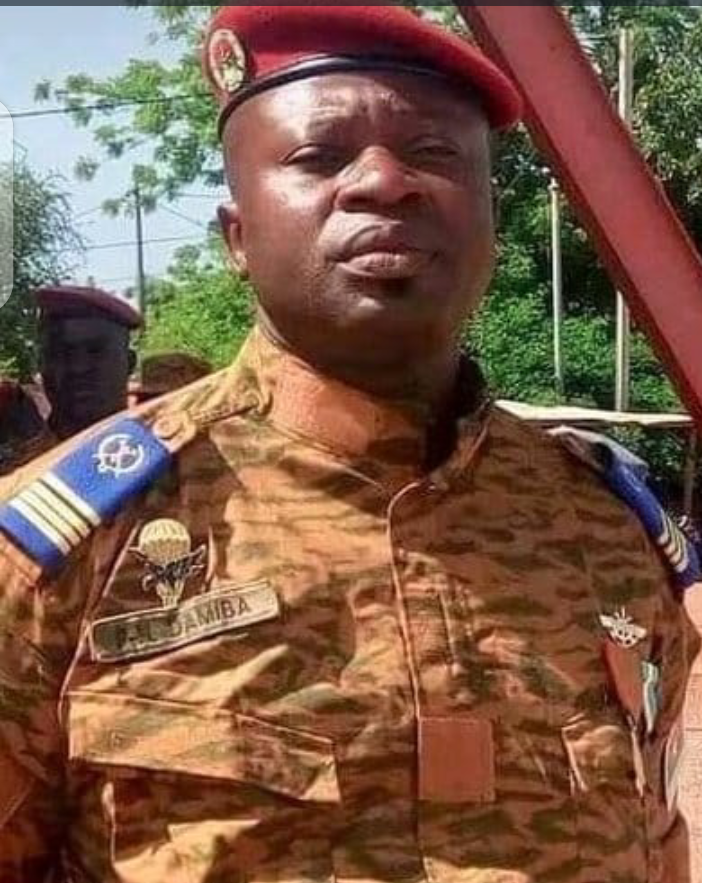By Paul Ejime
Burkina Faso was Monday enveloped in confusion and uncertainty amid reported toppling and detention of President Roch Mar Christian Kabore by soldiers. What started as a mutiny in several military camps on Saturday escalated into an apparent coup d’état on Monday with Lt.Col Paul-Henri Sandaogo Damiba as the reported coup leader.
Military authorities had said the mutiny was under investigation and denied the take-over of the government of President Kabore, who was elected in 2015 following national protests or “people-power” that forced his predecessor President Blaise Compaore into exile.
On Monday, diplomatic sources and the local media reported the arrest and detention of Kabore “in a military camp,” while soldiers surrounded the national broadcasting station with Internet services disrupted. But Defence Minister Gen. Barthelemy Simpore had on Sunday, denied reports of Kabore’s capture, but confirmed the shootouts by soldiers in several camps.
A night curfew is now in place across the country and schools are to be closed for two days from Monday.

Burkina Faso (the Land of people of integrity), with an estimated 21 million population, was formerly Upper Volta. It was renamed by military ruler Capt. Thomas Sankara, who seized power in a coup of 1983. He was killed in another coup in 1987, led by his friend Compaore. Compaore then ruled the country until 2014 when he was forced from power and into exile.
Kabore subsequently won the 2015 election, but has had a rocky reign defined by incessant deadly attacks by terrorists and jihadists linked to Al-Qaida and ISIS, West Africa. From 2015, more than 2,000 people, including dozens of soldiers have been killed in the terror attacks which have also forced thousands from their homes.
Before Saturday’s mutiny, there had been sporadic street protests over dissatisfaction with President Kabore’s alleged inability to stop the attacks by the invading armed groups.
The mutineers have voiced a similar grievance and called for a change of the military hierarchy; recruitment of more personnel and proper equipment of the military to fight the terrorists. They also demanded better service conditions for serving soldiers and care for families of their fallen colleagues.
A national inquiry has implicated Compaore in the death of Sankara, and the Kabore government had launched the process for the trial of the former president.
Analysts believe that some elements in the country’s military and/or government are against the trial and could be the brains behind the apparent regime change.
Burkina Faso has witnessed about eight coup attempts since independence from France in 1960, including one in 2015, and a recent plot for which eight soldiers are under investigation.
Meanwhile, ECOWAS, the regional bloc has in a communiqué expressed its solidarity with beleaguered President Kabore and called on the military to respect constitutional order.
The development in Burkina Faso reinforces the notion that democracy is rapidly sliding backwards in West Africa, with a resurgence of military incursions.
This puts further pressure on ECOWAS, which is currently labouring without much success to mediate the crises in Mali and Guinea, two other member States effectively under military rule after military coups that toppled the governments of elected Presidents Ibrahim Boubacar Keita and Alpha Conde, respectively.
The regional body has suspended the membership of both countries and imposed controversial and unprecedented sanctions on Mali, including financial and border blockade after the Col Assimi Goita-led military dominated interim regime announced a five-year delay to its transition programme from 2020.
ECOWAS has also imposed targeted sanctions against the Col Mamady Doumbouya-led junta in Guinea.
But while coups and military rule have no place in modern political governance system, they are the unfortunate consequence of bad governance, corruption, flawed elections and the illegal alteration of national constitutions by some ECOWAS leaders in order to obtain or cling on to power.
Sanctions alone cannot stop forceful takeover of government in the region.
But good governance and respect for national constitutions, human rights and the rule of law will go a long way in consolidating democracy and keeping soldiers in their barracks.
Paul Ejime is a Global Affairs Analyst and an Independent Consultant to International Organizations on Strategic Communications, Media, Peace & Security and Elections.
Dear readers, we really need your support to keep on serving you with authoritative, truthful, and juicy stories everyday. For your support, please reach out to the editor @gavelinternational66@gmail.com

